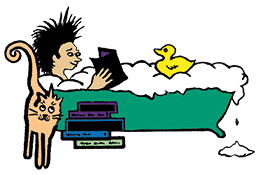|
|
Talk To Me: Conversation Strategies For Parents Of Children On The Autism Spectrum Or With Speech And Language Impairments
Stock informationGeneral Fields
Special Fields
DescriptionIf your child finds talking to people a struggle, this is the book to get the conversation started. In this hands-on guide, Heather Jones offers practical advice, born of experience with her own son, which will help you teach your child the principles of communication. Full of strategies and examples, it shows how you can allay fears, build confidence and teach your child to enjoy conversation. Once a child gets used to talking with other people, many life skills can develop more easily as they grow up - from making friends and shopping for themselves, to being interviewed and eventually getting a job. This handy book provides guidance and inspiration to parents, teachers and anyone else who cares for a child who finds language and comprehension difficult. Author descriptionHeather Jones's son, Jamie, has Asperger Syndrome and severe speech and language impairments. When Jamie was 10, Heather stumbled across a way of getting through to him. Over the years she developed this methodology in more detail, calling it conversational therapy, and has never looked back. Jamie is now 17 and can hold a conversation, which has enabled him to go to achieve much more, including passing his driving test and getting a job. Heather is the Director of Milkwood Educational, which publishes ESL textbooks in the Far East. She lives in Queensland, Australia. Table of contentsPreface. Part I: Conversational Therapy (10-15 years). 1: At the Speech Therapists. 2: How to Get Your Child Talking. 3: Demanding a Conversation from your Child. 4: It's Never too Late to Start Conversational Therapy. 5: When and How You Should Tell your Child He's Autistic. 6: Finding a Reward System that Works. 7: The Importance of Keeping a Diary. 8: Teaching Your Child How to Ask Questions. 9: Turn-Taking in Conversation. 10: Teaching Your Child to be an Active Listener. 11: Teaching the Importance of Staying on Topic. 12: What is Phatic Communication and Why Is It Important?. 13: The Importance of Eye Contact and How to Get It from Your Child. 14: The Importance of Names. 15: How to Get Others to Talk to your Child. 16: Talking about Body Language with your Child. 17: The Importance of Story-Telling. 18: Emotions. 19: Mind-Maps to Improve Conversation. 20: Shopping and Language. 21: Idioms and Incorrect English. Part II: Behavioural Matters (10-13 years). 22: Giving Praise. 23: Warnings, Reprimands and Encouragers. 24: Encouraging. 25: De-stressing Breakfasts. 26: Anger Management. Part III: Education (10-16 years). 27: Choosing a School. 28: Dealing with Crises at School. 29: Reading and Writing. 30: Money. 31: Games for the Car. 32: The Value of Projects. Part IV: Social Skills (13-15 years). 33: Friends. 34: Dealing with Authority Figures. 35: Becoming Responsible. 36: Organising Daily Life. 38: The Importance of Games. Part V: Life Skills (15-17 years). 40: Getting Your Child into a Routine. 41: Preparing Your Child to Organise his Life. 42: The Value of Chores?. 43: Preparing Your Child for Shopping. 44: Preparing Your Child for Cooking. 45: Making a Recipe Book. 46: Becoming Resilient. 47: How to Use Mind-Maps to Improve Life Skills. Part VI: Into the Workplace. 48: Job Interviews. 49: Preparing Your Child for Driving. 50: Preparing for the First Day at Work. Afterword: Where are we now? Appendix 1: Charting your Child's Progress. |

